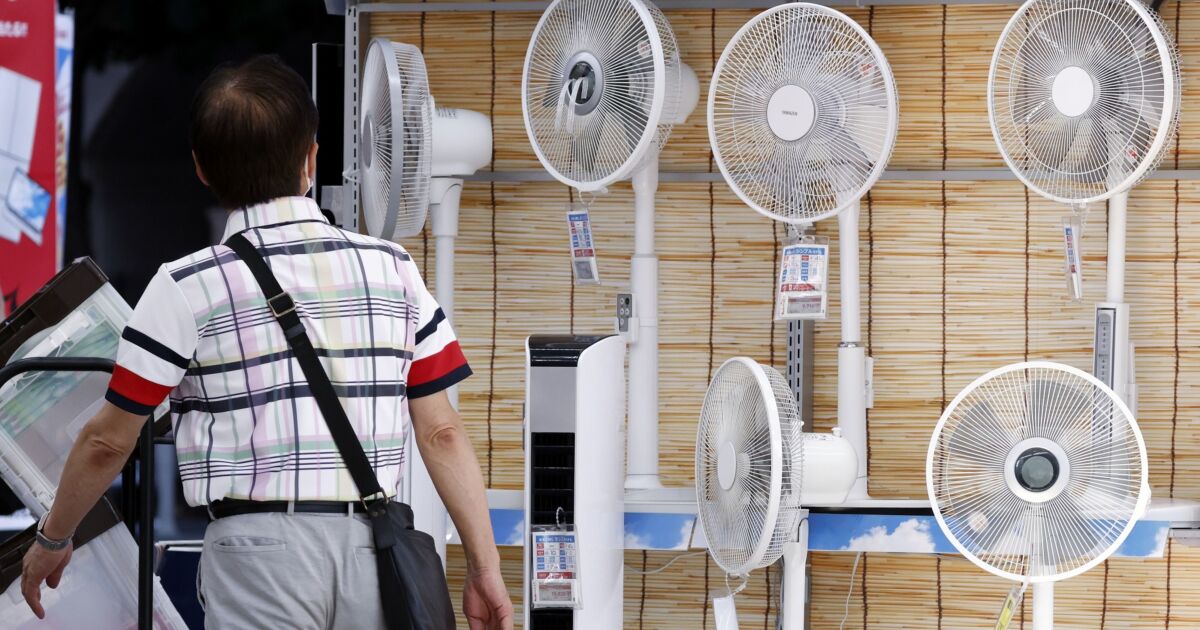Japanese insurers sell heatstroke coverage during sizzling summer

As temperatures soar to unprecedented levels from Europe to Asia this summer, some Japanese insurance companies have begun selling policies to protect people struck down by the heatwave.
Sompo Holdings Inc. and Sumitomo Life Insurance Co., two of the country’s biggest insurers, are offering policies specifically designed to cover medical expenses arising from heatstroke.
Japan hasn’t been spared by the brutal summer that’s hitting the northern hemisphere. In June — a month typically known for a relatively cool rainy season — temperatures in Tokyo exceeded 35 degrees for a record six days in a row, according to the Japan Meteorological Agency. The heatwave nationwide saw more than 14,000 people taken to hospital for emergency treatment in the week that ended July 3.
Sumitomo Life, in collaboration with SoftBank Group Corp.’s mobile-payments unit PayPay, started a heatstroke insurance plan in April that costs as little as 100 yen (73 cents) for a day’s coverage. If purchased before 9 a.m., the policy can take effect from 10 a.m. that day, covering hospitalization and other medical costs caused by the heat and sun. The plan is the first of its kind in the industry in Japan, according to a company spokesperson.
The number of heatstroke insurance policies sold at Sumitomo Life jumped to about 6,900 on June 29, compared with a maximum of around 400 per day before then, the Yomiuri newspaper reported last month.
Sompo’s heatstroke insurance plan released this month pays benefits for hospitalization, surgery and even death caused by sun or heat exposure, it said in a statement. The plan was initially only available to children, but due to rising heatstroke risks from more frequent heatwaves as well as mask-wearing due to the pandemic, the company made the product available to a broader age group, Sompo spokeswoman Shoko Oda said by telephone. Demand for the plan has been greater than expected, she said.
“These policies are not meant to be profitable, but they could be good ‘door openers’ to tap into clients that don’t have much insurance or are curious about it,” said Bloomberg Intelligence analyst Steven Lam. “If the whole claims experience is good, that might lead into other sales opportunities.”
–With assistance from Sophie Jackman.



